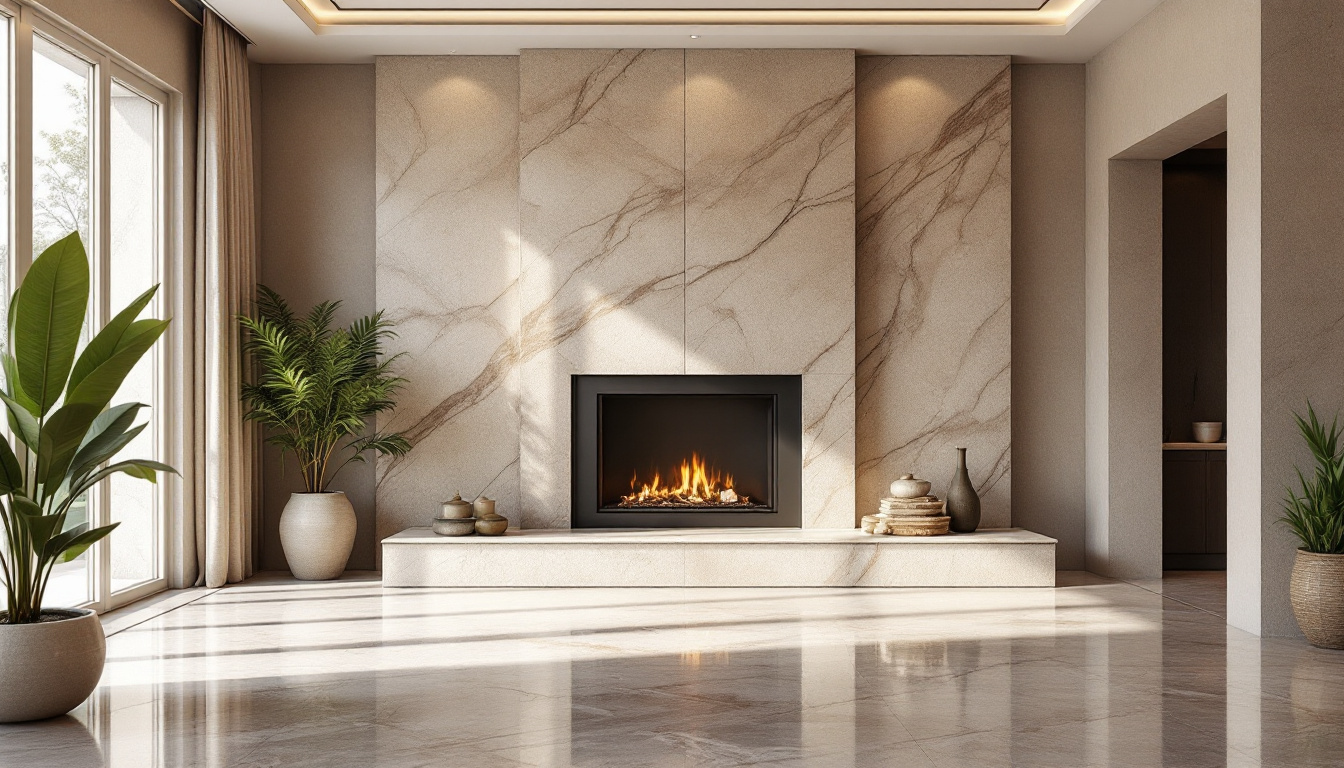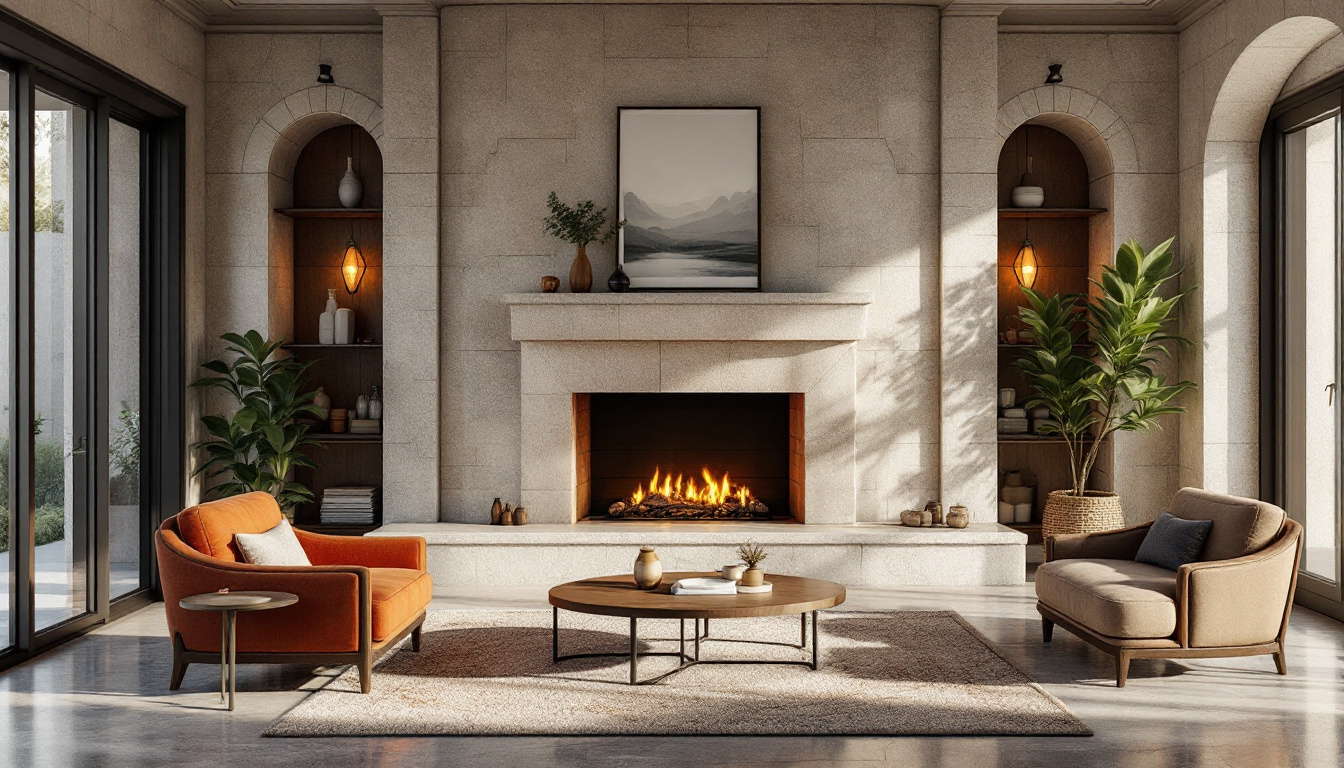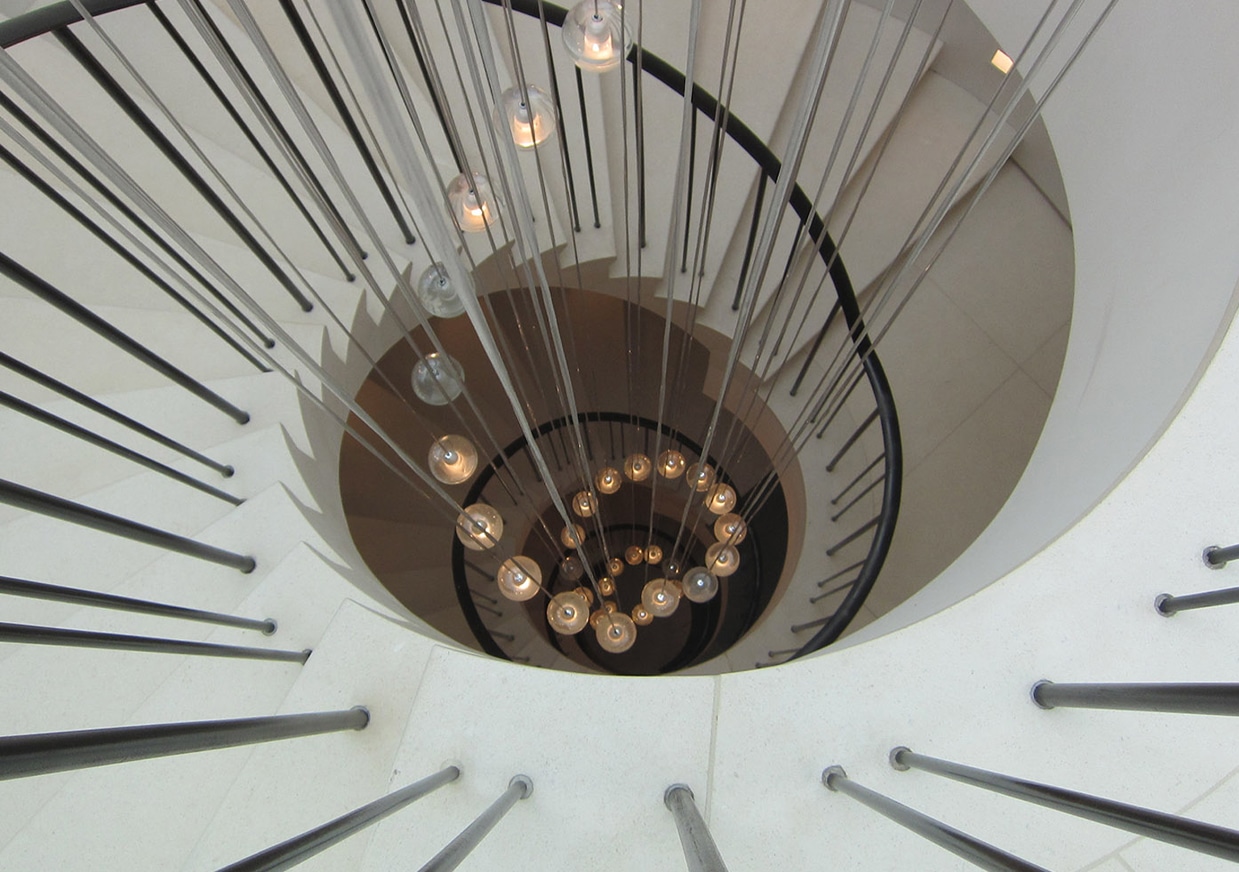
In the world of interior design, bespoke natural stone interiors have emerged as a popular choice for those seeking a unique and timeless aesthetic. This design approach utilizes natural stone, custom cut and shaped to fit the specific needs and tastes of the client. The result is an interior that is not only visually stunning, but also durable and sustainable.
Natural stone, with its myriad of colors, textures, and patterns, offers a wealth of design possibilities. From marble and granite to limestone and slate, each type of stone has its own unique properties and aesthetic appeal. When used in a bespoke interior design, these stones can be transformed into stunning architectural features, furniture, and decorative elements.
Understanding Bespoke Natural Stone Interiors
The term ‘bespoke’ refers to something that is custom-made to the buyer’s specification. In the context of interior design, bespoke natural stone interiors are spaces where the architectural and decorative elements are made from custom-cut natural stone. This approach allows for a high level of customization, as each piece of stone can be cut, shaped, and finished to meet the specific needs and tastes of the client.
One of the key benefits of bespoke natural stone interiors is their durability. Natural stone is incredibly hard-wearing, making it an ideal choice for high-traffic areas such as kitchens and bathrooms. Furthermore, because each piece of stone is unique, bespoke natural stone interiors have a timeless appeal that is not subject to changing design trends.
Types of Natural Stone Used in Bespoke Interiors
There are many types of natural stone that can be used in bespoke interiors, each with its own unique properties and aesthetic appeal. Some of the most popular choices include marble, granite, limestone, and slate.
Marble, with its elegant veining and range of colours, is a popular choice for luxury interiors. Granite, on the other hand, is known for its durability and is often used in kitchens and bathrooms. Limestone, with its warm, earthy tones, is ideal for rustic or country-style interiors, while slate, with its rich, dark color and distinctive texture, is a popular choice for contemporary designs.
Customizing Natural Stone for Bespoke Interiors
One of the key aspects of bespoke natural stone interiors is the customization process. This involves selecting the type of stone, determining the size and shape of the pieces, and choosing the finish.
The type of stone selected will depend on the desired aesthetic and the specific needs of the space. For example, marble may be chosen for its elegance and luxury, while granite may be selected for its durability. The size and shape of the pieces will depend on their intended use. For example, large slabs may be used for countertops or flooring, while smaller pieces may be used for decorative elements. The finish of the stone can also be customized, with options ranging from polished to honed to flamed.
Designing with Bespoke Natural Stone
Designing with bespoke natural stone requires a careful consideration of the space, the client’s needs and tastes, and the properties of the stone. The goal is to create a harmonious and cohesive design that enhances the natural beauty of the stone.
One of the first steps in the design process is to select the type of stone. This decision will be influenced by the desired aesthetic, the specific needs of the space, and the client’s personal preferences. Once the type of stone has been selected, the designer will work with the client to determine the size, shape, and finish of the pieces.
Creating a Cohesive Design
Creating a cohesive design with bespoke natural stone involves considering the color, texture, and pattern of the stone, as well as the overall layout of the space. The goal is to create a balanced and harmonious design that enhances the natural beauty of the stone.
One approach is to use the same type of stone throughout the space to create a sense of continuity and cohesion. Alternatively, different types of stone can be used in different areas to create contrast and visual interest. The key is to ensure that the various elements work together to create a cohesive whole.
Enhancing the Natural Beauty of the Stone
One of the key benefits of bespoke natural stone interiors is the opportunity to enhance the natural beauty of the stone. This can be achieved through careful selection of the stone, thoughtful design, and skilled craftsmanship.
The beauty of natural stone lies in its unique colors, textures, and patterns. By selecting the right type of stone and using it in the right way, designers can highlight these natural features and create stunning interiors. Furthermore, by working with skilled craftsmen, designers can ensure that each piece of stone is cut, shaped, and finished to the highest standard, further enhancing its natural beauty.
Benefits of Bespoke Natural Stone Interiors
Bespoke natural stone interiors offer a number of benefits, from aesthetic appeal to durability to sustainability. These benefits make them a popular choice for a wide range of interior design projects.
One of the key benefits of bespoke natural stone interiors is their aesthetic appeal. Natural stone, with its myriad of colors, textures, and patterns, offers a wealth of design possibilities. When used in a bespoke design, these stones can be transformed into stunning architectural features, furniture, and decorative elements that are truly one-of-a-kind.
Durability and Longevity
Natural stone is incredibly durable and long-lasting. It is resistant to heat, scratches, and stains, making it an ideal choice for high-traffic areas such as kitchens and bathrooms. Furthermore, because it is a natural material, it does not fade or discolor over time, ensuring that it retains its beauty for many years to come.
Another benefit of bespoke natural stone interiors is their longevity. Because each piece of stone is custom-cut and shaped to fit the specific needs and tastes of the client, these interiors are not subject to changing design trends. This means that they can remain stylish and relevant for many years, making them a good investment for those seeking a timeless interior design.
Sustainability
Natural stone is a sustainable material, making bespoke natural stone interiors an environmentally friendly choice. Stone is a natural resource that is abundant and renewable. Furthermore, because it is so durable, it does not need to be replaced as often as other materials, reducing waste and conserving resources.
In addition, natural stone can help to improve the energy efficiency of a building. Stone has excellent thermal mass, meaning it can absorb, store, and slowly release heat. This can help to regulate the temperature of a space, reducing the need for artificial heating and cooling and thereby reducing energy consumption.
Challenges of Bespoke Natural Stone Interiors
While bespoke natural stone interiors offer many benefits, they also present certain challenges. These include the cost of the stone and the installation, the weight of the stone, and the need for regular maintenance.
Natural stone is a premium material, and as such, it comes with a premium price tag. The cost of the stone itself can be quite high, especially for rare or exotic types. In addition, because each piece of stone is custom-cut and shaped, the installation process can be labor-intensive and therefore costly. However, many people consider the cost to be a worthwhile investment for the unique aesthetic and lasting durability that bespoke natural stone interiors provide.
Weight Considerations
Natural stone is a heavy material, which can present challenges in terms of installation and structural support. It is important to ensure that the building can support the weight of the stone, especially in the case of large slabs or heavy architectural features. This may require the input of a structural engineer.
In addition, the installation process can be challenging due to the weight of the stone. It requires specialized equipment and skilled labor, adding to the cost and complexity of the project. However, with proper planning and execution, these challenges can be successfully managed.
Maintenance Requirements
While natural stone is incredibly durable, it does require regular maintenance to keep it looking its best. This includes regular cleaning with a gentle, pH-neutral cleaner to remove dirt and grime, as well as periodic sealing to protect the stone from stains and damage.
It’s also important to address any spills or stains promptly to prevent them from penetrating the stone. Certain types of stone, such as marble and limestone, are particularly susceptible to acid etching, so care should be taken to avoid contact with acidic substances such as lemon juice or vinegar.
Conclusion
Bespoke natural stone interiors offer a unique and timeless aesthetic that is both durable and sustainable. With careful selection of the stone, thoughtful design, and skilled craftsmanship, these interiors can enhance the natural beauty of the stone and create a truly one-of-a-kind space.
While there are challenges associated with bespoke natural stone interiors, such as the cost and weight of the stone and the need for regular maintenance, these can be successfully managed with proper planning and execution. The result is an interior that is not only visually stunning, but also built to last.
Discover Your Stone Masterpiece with A F Jones Stonemasons
Ready to transform your space with the elegance and durability of bespoke natural stone interiors? A F Jones Stonemasons, with over 160 years of heritage and expertise, is at your service. From concept to installation, our dynamic team is equipped to bring your vision to life with precision and artistry. Whether it’s a grand architectural project or a personal private commission, we embrace the challenge and promise to deliver exceptional value. Visit our showroom in the rolling hills of Oxfordshire or make an enquiry today to start crafting your one-of-a-kind interior with the true potential of stone.


